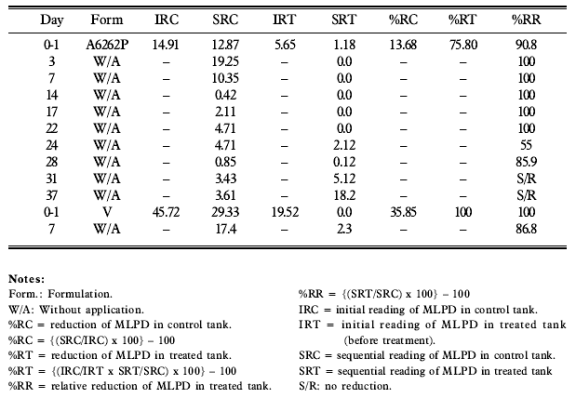A comparison between chemical and biological larvicides in routine operations against mosquitoes in Rio Grande do Sul State was carried out in this study. In laboratory bioassays against Culex quinquefasciatus, biological formulations Vectobac 12 AS and Teknar 3000 (Bacillus thuringiensis israelensis) as well as ABG 6262 (B. sphaericus 2362), both in liquid and powder form, were highly effective. Locally produced B.thuringiensis israelensis, formulations also yielded good results. Among chemical larvicides, pyrethroid compounds Pirisa and K-Othrine yielded better results than the organophosphates Lebaycid and Abate. These last formulations yielded responses ten weaker than predicted in other studies. Under field conditions, a dose of 1250 mg/m² for biological formulations was considered adequate for routine application because at this level it is possible to overcome physical influences on results. Only B.sphaericus preparations caused important disruption of mosquito colonization in active breeding sites. Up to 39 weeks were tabulated without complete colonization in natural conditions and one month in artificially colonized tanks. This study suggests that biological alternatives should be considered in mosquito control programs. They may be a solution to such problems as resistance to larvicides, elimination of natural enemies, and short-lasting effects of applications.
Mosquitoes; Larvicides; Biological Control








